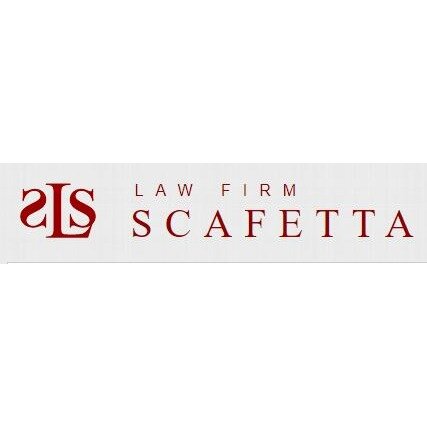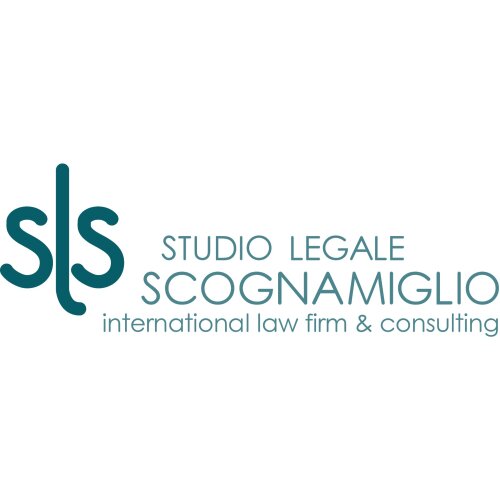Best Debt Capital Markets Lawyers in Naples
Share your needs with us, get contacted by law firms.
Free. Takes 2 min.
List of the best lawyers in Naples, Italy
About Debt Capital Markets Law in Naples, Italy
Debt Capital Markets (DCM) law in Naples, Italy, refers to the legal framework that governs the issuance, trading, and regulation of debt securities such as bonds and notes. These markets provide a way for companies, public entities, and financial institutions to raise funds by selling debt instruments to investors. Naples, as a significant financial hub in southern Italy, is home to numerous transactions involving both Italian and international parties. Italian laws, European Union regulations, and local market practices shape the DCM landscape in Naples, requiring specialized legal knowledge for successful navigation.
Why You May Need a Lawyer
Legal assistance in Debt Capital Markets is essential due to the complexity and risks involved in these transactions. You may need a lawyer for the following reasons:
- Structuring and documenting the issuance of bonds or other debt instruments
- Ensuring compliance with Italian and EU financial regulations
- Drafting and negotiating agreements between issuers, investors, and intermediaries
- Managing securities offering documentation such as prospectuses and listing particulars
- Providing legal opinions and risk assessments for cross-border deals
- Assisting with regulatory filings and compliance with Borsa Italiana and CONSOB requirements
- Resolving disputes or regulatory investigations related to debt securities
- Advising on tax issues connected to debt issuance
Each situation may involve substantial sums and complex regulations, so experienced legal guidance helps you avoid costly errors and legal exposure.
Local Laws Overview
Debt Capital Markets in Naples are regulated under Italian law, with significant influence from European Union directives and regulations. Key aspects include:
- Issuance of Debt Instruments: Debt securities issued in Naples must comply with the Italian Civil Code, the Consolidated Law on Finance (Testo Unico della Finanza, TUF), and relevant EU laws such as the Prospectus Regulation.
- Public and Private Offers: Public offerings of debt securities require the preparation of a prospectus approved by CONSOB (Commissione Nazionale per le Società e la Borsa), Italy’s securities regulator.
- Regulatory Bodies: CONSOB and Banca d’Italia oversee the markets to ensure investor protection, market transparency, and prevent financial crime.
- Listing and Trading: The Borsa Italiana in Milan is Italy’s main exchange for listing bonds, though legal work and deal negotiations can occur locally in Naples.
- Tax: Domestic and cross-border debt transactions may be subject to withholding taxes, stamp duties, and other fiscal requirements under Italian law.
- Disclosure Obligations: Issuers must comply with periodic reporting and disclosure obligations to maintain transparency for investors and regulators.
- International Regulations: EU regulations such as MiFID II and the Market Abuse Regulation apply to market participants in Naples as they do elsewhere in Europe.
Frequently Asked Questions
What types of entities can issue bonds in Naples, Italy?
Corporations, public bodies, banks, and occasionally supranational organizations can issue bonds, provided they comply with Italian and EU legal requirements.
What is the role of CONSOB in Debt Capital Markets?
CONSOB regulates and supervises securities markets in Italy, including the approval of prospectuses and monitoring of market activities to protect investors.
Is a prospectus always required for bond offerings?
A prospectus is required for public offerings, but certain exemptions exist for private placements or qualified investor offers. Legal advice helps determine if an exemption applies.
Can foreign companies raise debt in Naples?
Yes, foreign companies can issue debt securities in Naples, but must comply with Italian law and regulatory requirements, which often requires local legal support.
What are the main risks in Debt Capital Markets transactions?
Common risks include noncompliance with regulatory requirements, misrepresentation in disclosure documents, legal disputes, tax issues, and creditworthiness of issuers.
How are disputes handled in Debt Capital Markets?
Disputes may be resolved through negotiation, Italian or international arbitration, or litigation in Italian courts, depending on the agreements between parties.
Is it necessary to list bonds on the Borsa Italiana?
Listing is not mandatory for all bonds but is common for ensuring liquidity and marketability. Unlisted bonds may be offered privately to select investors.
What ongoing obligations do issuers have after a bond issuance?
Issuers must make regular financial disclosures, comply with reporting standards, and meet any covenants specified in the bond documentation.
How does Italian law address investor protection?
Investor protection is addressed through strict disclosure requirements, regulation of intermediaries, market surveillance, and legal remedies for misconduct.
What documentation is needed for a Debt Capital Markets transaction?
Key documents include the prospectus, subscription agreements, trust deeds, legal opinions, listing documents, and regulatory filings.
Additional Resources
For more information or support regarding Debt Capital Markets in Naples, consider contacting:
- CONSOB (Commissione Nazionale per le Società e la Borsa): Italy’s main securities market regulator
- Banca d’Italia: The central bank overseeing banking and payment systems regulation
- Borsa Italiana: The main Italian stock exchange where bonds may be listed
- Italian Bar Association (Ordine degli Avvocati): For help finding specialized capital markets lawyers in Naples
- European Securities and Markets Authority (ESMA): Sets pan-European regulations affecting Italian markets
Next Steps
If you require legal assistance in Debt Capital Markets in Naples, it is advisable to:
- Identify a law firm with experience in Italian and EU capital markets law
- Consult with a qualified lawyer before initiating any transaction
- Gather all relevant documentation and information about your intended transaction
- Ask your legal advisor for a preliminary assessment of regulatory and compliance requirements
- Verify the lawyer's credentials with the local bar association if needed
Proper legal guidance can help you navigate the complexities of Debt Capital Markets, ensuring regulatory compliance and protecting your interests throughout the transaction.
Lawzana helps you find the best lawyers and law firms in Naples through a curated and pre-screened list of qualified legal professionals. Our platform offers rankings and detailed profiles of attorneys and law firms, allowing you to compare based on practice areas, including Debt Capital Markets, experience, and client feedback.
Each profile includes a description of the firm's areas of practice, client reviews, team members and partners, year of establishment, spoken languages, office locations, contact information, social media presence, and any published articles or resources. Most firms on our platform speak English and are experienced in both local and international legal matters.
Get a quote from top-rated law firms in Naples, Italy — quickly, securely, and without unnecessary hassle.
Disclaimer:
The information provided on this page is for general informational purposes only and does not constitute legal advice. While we strive to ensure the accuracy and relevance of the content, legal information may change over time, and interpretations of the law can vary. You should always consult with a qualified legal professional for advice specific to your situation.
We disclaim all liability for actions taken or not taken based on the content of this page. If you believe any information is incorrect or outdated, please contact us, and we will review and update it where appropriate.










